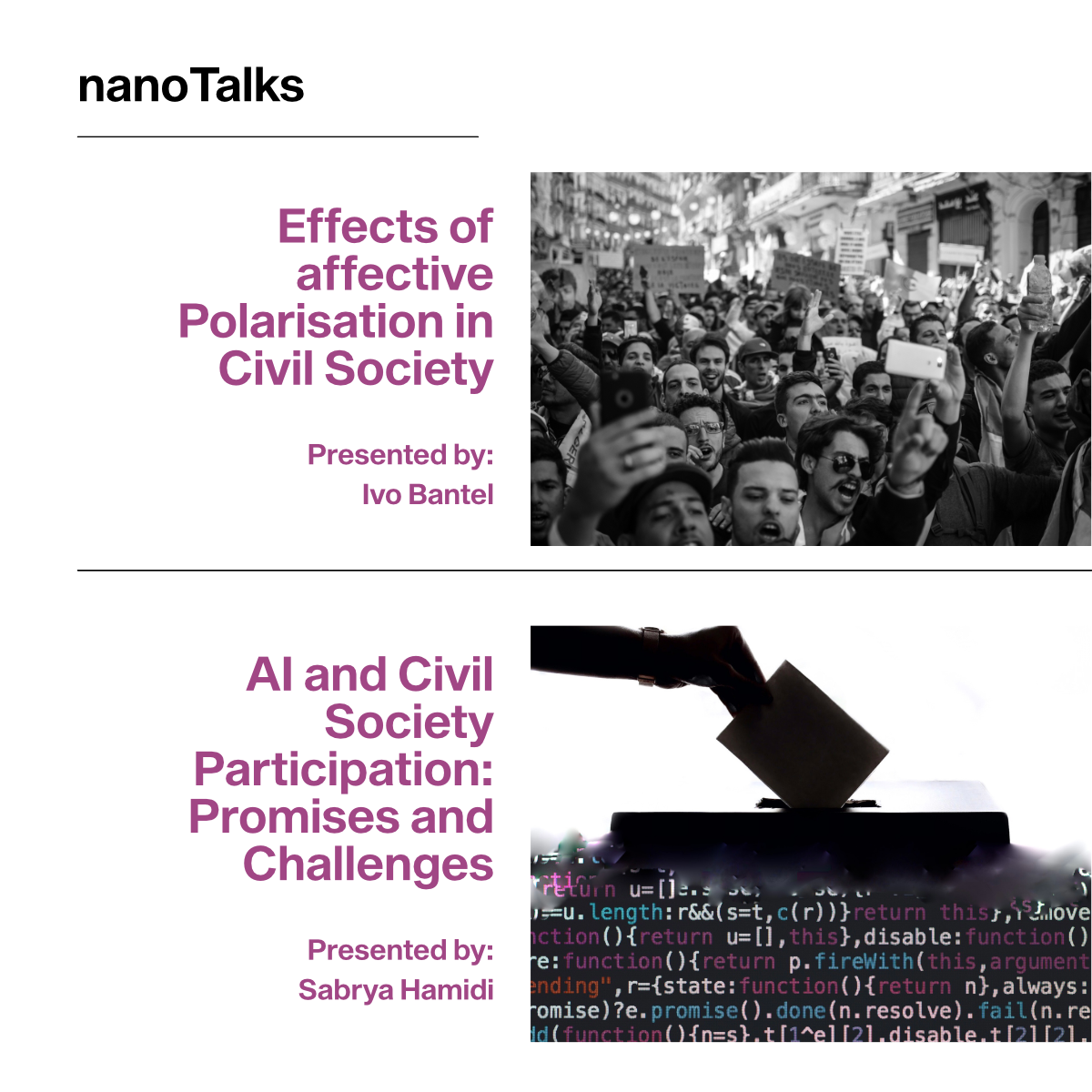
March nanoTalks: Digital Democracy
Join our nanoTalks about Digital Democracy. You learn that affective polarization - disliking members of political out-groups is driven by party distinctions but also for example the type of political representation. And we will talk about Artificial Intelligence in a democracy - is it a danger or a chance?

Free
Talk 1: Effects of affective Polarisation in Civil Society
Speaker: Ivo Bantel; PhD Candidate at the Department of Political Science, UZH
The US Capitol riot on January 6th stands exemplary for the detrimental effects of polarization. Yet polarization can concern either ideology or affect. While a certain degree of the former is needed for a functioning democracy, affective polarization -- disliking members of political out-groups -- is detrimental: it makes compromise more difficult and can ultimately undermine the functioning of democracy. But which specific group distinctions and which electoral institutions foster this out-group affect? In this talk you will learn that affect is not only driven by party distinctions: wider political camps, ideological distance, and the type of political representation in a country matter as well.
Talk 2: AI and Civil Society Participation: Promises and Challenges
Speaker: Sabrya Hamidi; PhD Candidate at the Global Studies Institute, University of Geneva
Artificial intelligence (AI) triggers the greatest hopes in today’s society. When discussing digital technologies' role in liberal democracies, however, AI is probably one of the most controversial as it also stands as a serious challenge to democracies. From the citizen’s perspective, AI raises concerns about freedoms, opinion formation or misinformation. Yet we will show that there is also evidence that AI can empower citizens and represent an opportunity for democracy and solving some of the problems that it has itself caused. The question is thus: can AI be more supportive than corrosive to democracy?
